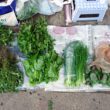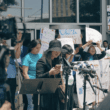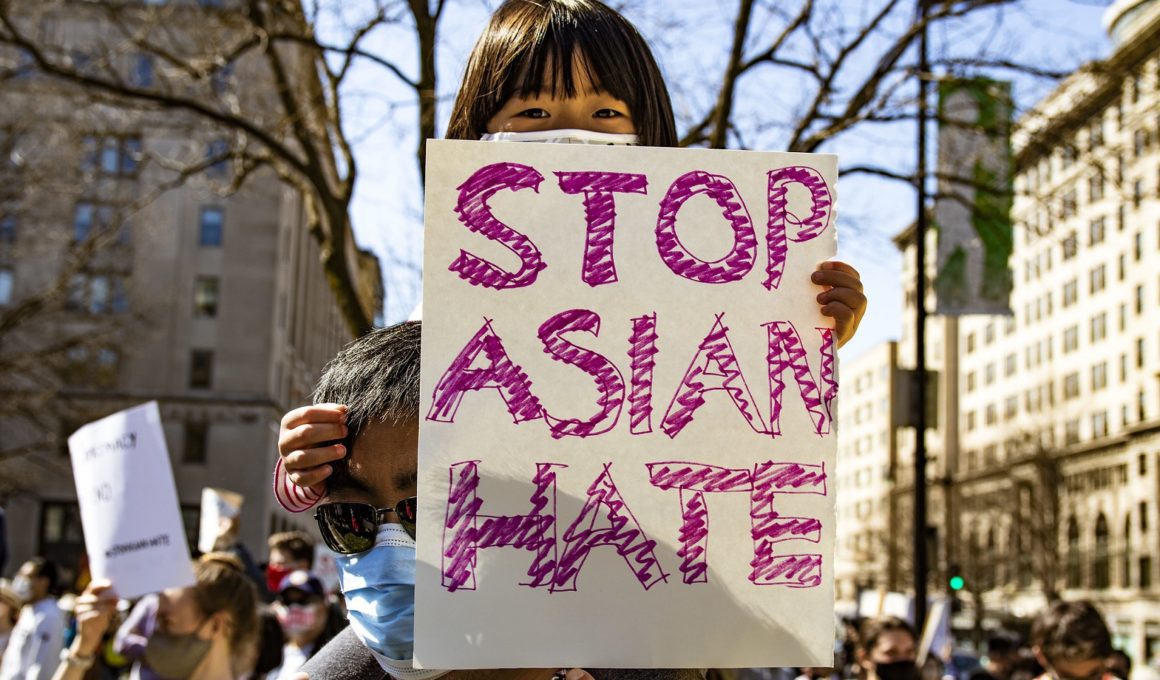Sign up here to receive The Yappie‘s weekly briefing on Asian American + Pacific Islander politics and support our work by making a donation.
Activists, community leaders, and celebrities gathered virtually last month for the first-ever Changemakers Summit as part of an effort to raise the alarm around a sharp increase in bullying against Asian American and Pacific Islander (AAPI) youth.
The Oct. 23 event, hosted during National Bullying Prevention Month by a trio of advocacy groups dedicated to raising visibility of anti-AAPI hate, aimed to empower youth and develop the next generation of AAPI activists, organizers noted.
Led by Act To Change, Hate Is A Virus, and Stop AAPI Hate, the summit offered a range of workshops, panels, creative spaces, and community discussions that adhered to three tracks: social justice, education and innovations.
All were tailored to the conference’s four pillars: inform, education, empower, and celebrate.
First Lady Dr. Jill Biden, who gave opening remarks, was the summit’s most high-profile speaker.
“To the students, educators, and community leaders at this year’s Changemakers Summit: You represent the best of who we are as Americans,” Biden said in a virtual address. “Through your courage and vision, you are preparing our nation’s next generation of Asian American, Native Hawaiian, and Pacific Islander leaders.”


“Too many of you have experienced the taunts, the looks, the physical and emotional distress that comes everyday online, in our schools, and just walking the streets of America,” she added. “We are committed to fighting hate crimes and bullying in all its forms. We stand united against racism. We stand united for justice and equality. And we stand united in the belief that every child deserves to grow up proud of who they are.”
Other events featured author and longtime activist Helen Zia, Rise founder Amanda Nguyen, Teen Vogue Editor-in-Chief Versha Sharma, photographer and Protect Mauna Kea advocate Kapulei Flores, and actor and content creator Ryan Alexander Holmes.
Vi Huynh, a high school senior and Stop AAPI Hate Youth Campaign intern, told The Yappie that presenting her workshop—titled “Sexualizing Asians and Its Impacts”—felt powerful.
“By the end of the conference, I felt empowered to not only do better for myself but have the knowledge to help empower others,” Hyunh said.
80% of Asian Americans teens have experienced bullying over the past year, according to a recent Act To Change and NextShark survey of more than 300 youths. The rise, which occurred alongside a surge in physical violence against AAPIs at the start of the pandemic, has alarmed experts and educators alike.
In reports collected by Stop AAPI Hate, one 17 year old faced repeated online harassment from people who said their “insides are full of ‘fucking bats” and that they should consider suicide because they are a “dirty fucking dog eater.” Another 14-year-old student found himself tailed by a group of high school boys who pretended to cough on him and shouted, “Ching chong! You have Chinese virus!”
Stop AAPI Hate also documented multiple reports in which bystanders simply did nothing as an Asian person was abused. Many parents have had to contend with whether their child would be safer at school or at home as in-person learning resumed.
East and Southeast Asians aren’t the only AAPIs to have experienced a spike in hate, either. Stop AAPI Hate has recorded similar—albeit smaller—jumps in hate incidents targeting South Asians and Pacific Islanders.
“When Vincent Chin was killed and Asian Americans along with … the Black community, Jewish community, Latinx community, women’s movement, [and] LGBTQs stood together, none of us ever thought, 40 years from now, we’re still gonna be talking about this,” Zia said during a panel.


“What that means is what we do today to try and bring those values about equality, equity, making space for those who are quiet to speak up, to shine a light and create space for communities that aren’t being heard—within our own communities as well as beyond—all of those things that we do will make a difference and set a tone for the future.”
The pandemic worsened mental health for everyone, but Asians have had to bear the additional burden of COVID-inflamed hate. Suicide is already the first leading cause of death among Asian American ages 15 to 24, according to the Centers for Disease Control and Prevention.
“AAPI youth, and all young people, deserve to grow up feeling safe and to celebrate their identities,” said Maulik Pancholy, the chair and co-founder of Act To Change. “Being able to recognize the signs of bullying and equipping caregivers, teachers, and students with resources to address bullying is vital to make lasting change.”
Act To Change originally launched as a campaign under the Obama administration’s White House Initiative on AAPIs. The advocacy group, which now operates independently, serves to provide resource support for educators and caregivers, and impact policy involving AAPIs.
Act To Change is known for its Homeroom x Tan France series, which offers youth an intimate space to speak with the “Queer Eye” star on issues of identity and bullying, and a new youth ambassador program aimed at equipping AAPI youth with tools to advocate for their community.
Sponsors of the summit donated over $250,000, the proceeds of which will go toward the three host organizations in their mission to combat anti-AAPI hate.
Mental health resources:
If you are struggling with distressing thoughts, call the National Suicide Prevention Lifeline at 1-800-273-8255 (TALK).
- More at: SpeakingOfSuicide.com/resources.
The NAMI HelpLine can be reached Monday through Friday, 10 a.m. to 8 p.m. Eastern time. Call 1-800-950-NAMI (6264) or email [email protected].
- Text NAMI to 741-741 to receive free, 24/7 crisis support via text message.
Reach the Crisisline at 1-800-273-TALK.
- For assistance in Asian languages, dial 1-877-990-8585.
- Text CONNECT to 741741 to access the Crisis Text Line.
The South Asian Sexual & Mental Health Alliance offers a 24/7 hotline to discuss issues you or a friend are experiencing, as well as provide referrals to local supports.
- SAMHSA’s National Helpline: 1-800-662-HELP (4357) or 1-800-487-4889 (TDD)
- Free and confidential information in English and Spanish for individuals accessible 24/7.
Contact Asian Women’s Center’s 24/7 crisis hotline at 1-877-751-0880.









